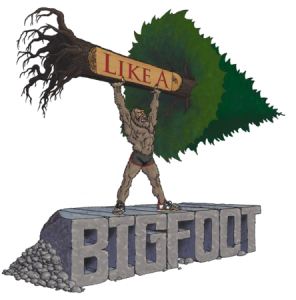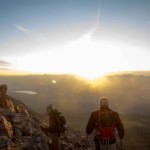Exercising at High Altitude, A.K.A. the bane of a Flatlander’s existence.
There’s something about being in the Rocky Mountains that I am utterly in love with. I love the beautiful scenery, I love the fresh air, I love being able to see for miles and miles and, of course, I love all of the outdoor activities.
The one thing I don’t love: The altitude.
Two quick stories about my struggles:
My dad was a high school principal for a small Colorado town: Ault (Town slogan “A Unique Little Town”). The summer before my Junior year of high school I participated in their football camp. Although the school was not even in the mountains, the altitude was still much higher than what I was used to in Iowa (Iowans are what Coloradoans call “Flatlanders”). Partway through the practice I felt like passing out. Tasks that were easy back home suddenly became ridiculously challenging. It felt like I was doing sprints while breathing through a straw.
Now head up in the mountains and multiply that feeling by 100 and you have yourself the brutal truth of altitude: It sucks if you are not used to it.
My first attempt at a 14er was wrought with failure due to lack of exposure to high altitude. My friends and I basically traveled overnight from Iowa to the base of Longs Peak and began the hike. Longs becomes really sketchy about a mile from the summit (I’m talking 1000 foot cliffs and exposure to high winds) and I found my self stumbling over every boulder with a headache pounding with the force of one hundred nasty hangovers. My friends continued on to summit while I sat in a shelter with my head between my hands trying to suppress the urge to puke on the other hikers sitting next to me. (That didn’t convince you to hike a 14er? Read about why you should hike a 14er here and plan your trip here).
Altitude has always been my nemesis.
What exactly is happening physiologically to our bodies at a higher altitude? In simple terms: why does altitude kick our ass so much?
Here are a few thoughts about the effects of altitude on our bodies:
Your body is responding mostly to the lowering of ambient atmospheric pressure rather than the decrease of oxygen to your lungs.
Your body responds by increasing heart rate and blood pressure (pump more blood cells to carry more oxygen); within a few days of exposure your heart rate will decrease.
Your body loses fluids through the blood vessels while delivering oxygen to the cells. This causes you to pee more and requires you to constantly drink water to stay hydrated. I can attest for this. Seriously get used to peeing like four times in an hour.
Swelling may increase the higher you go, due to fluid from your blood vessels building up in your body. I’ve seen people on 14ers with fingers swelled up like hotdogs.
Hypoxic hypoxia (lack of oxygen to certain tissues) begins to show at 2,333 ft. (700m).
Acclimatization is controversial in science with some arguing that athletes can be acclimatized in two weeks while other scientists are determined that this can take up to several months.
What if you are traveling to the mountains and want to go out for a run?
My biggest suggestion is to slowly ingratiate yourself into exercising at high altitude.
Don’t push yourself too hard those first few times. If you are used to 7 or 8 minute miles, be OK with a slower pace. You will get acclimatized…eventually.
Drink a lot, I mean A LOT of water. Determine your hydration using the old Mountain Dew pee test. If your urine looks like Mountain Dew you are dehydrated, if it is clear than you are overly hydrated.
(SIDE NOTE: Holy shit! I think I just realized how they came up with that name!! The marketing dude must have been hanging out in the mountains when faced with “what to call this bright yellow drink?” He decided to do some deep meditation in the bathroom, where all good thoughts come to us. He looked down at his bright yellow dehydrated pee and had a Eureka moment! “I’m in the mountains…MOUNTAIN…Pee…Mountain Pee! Wait, that probably won’t fly. What else is liquid? Water…Mountain Water? Sounds dumb….people will think they are drinking water…what should I do…Do? Dew! Mountain Dew!”)
My last piece of advice is to participate in as many activities as you can. Go hiking, mountain biking, skiing, and snowshoeing. Just being as active as possible will help you acclimatize quicker.



Leave a Reply